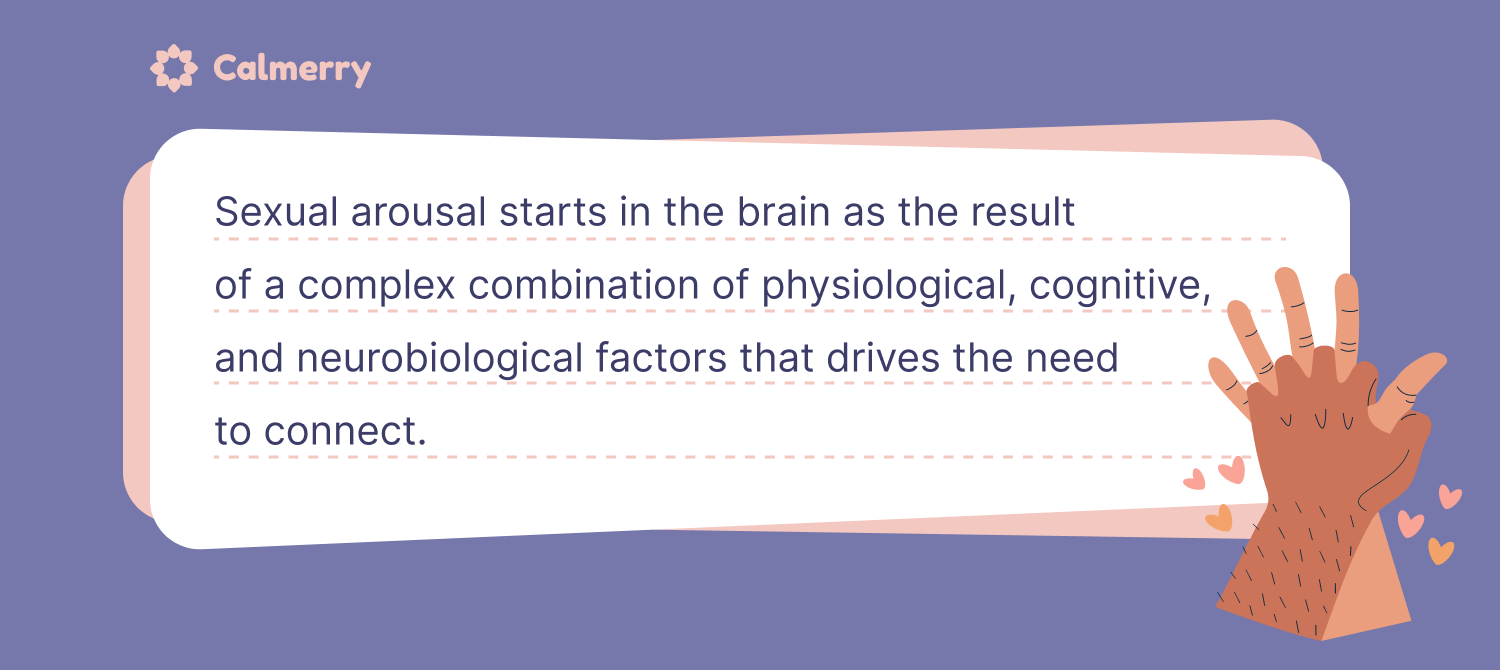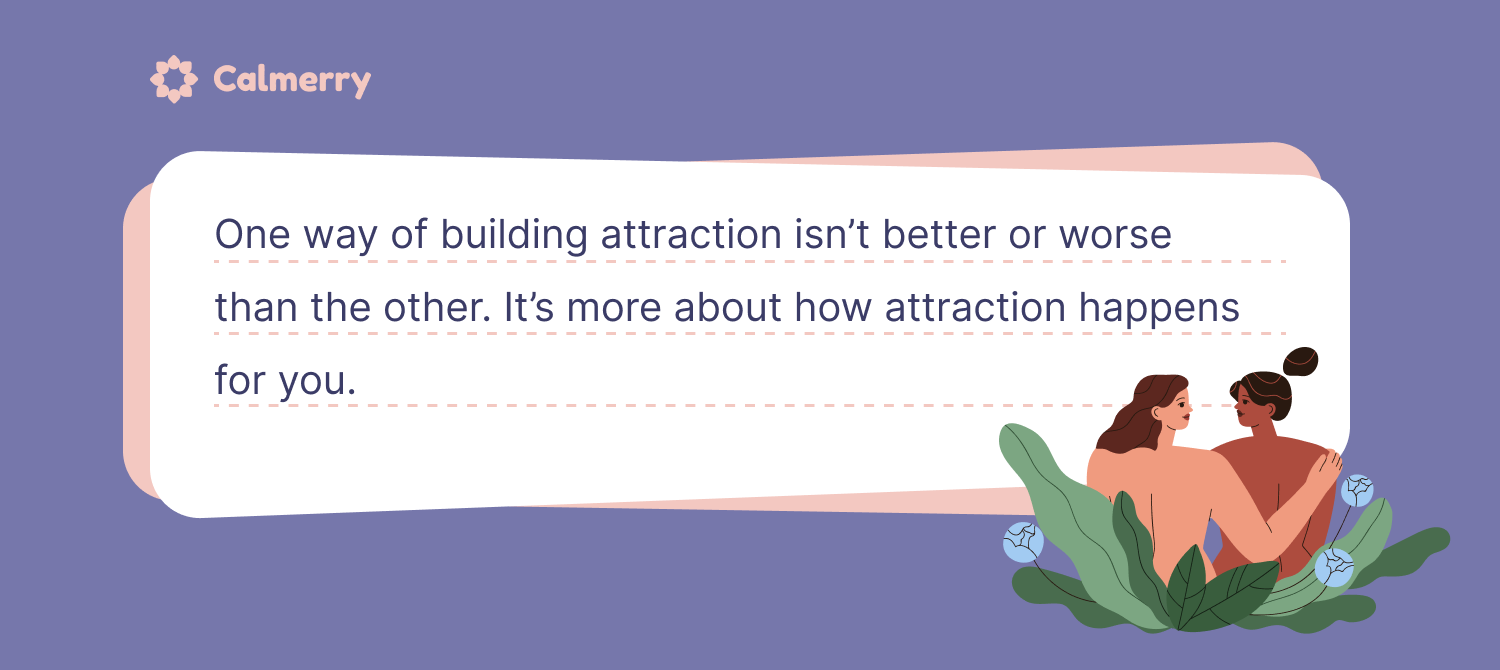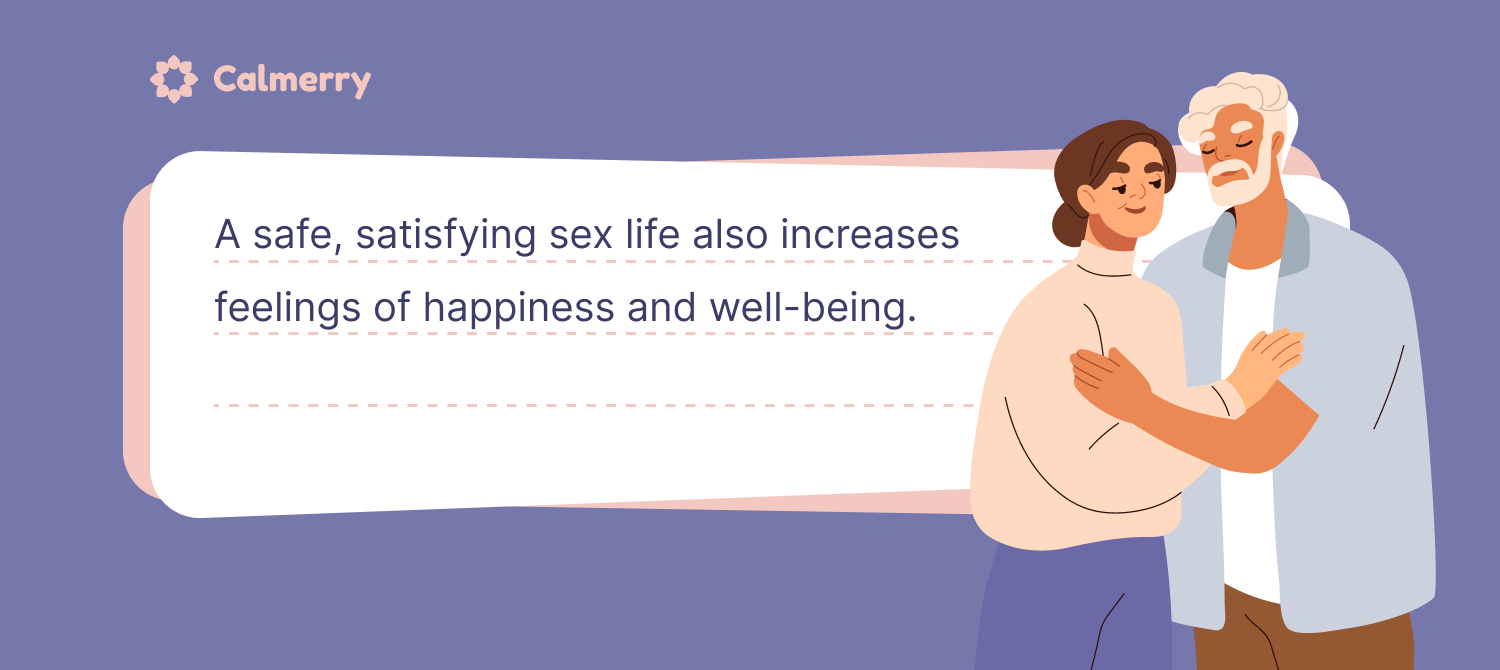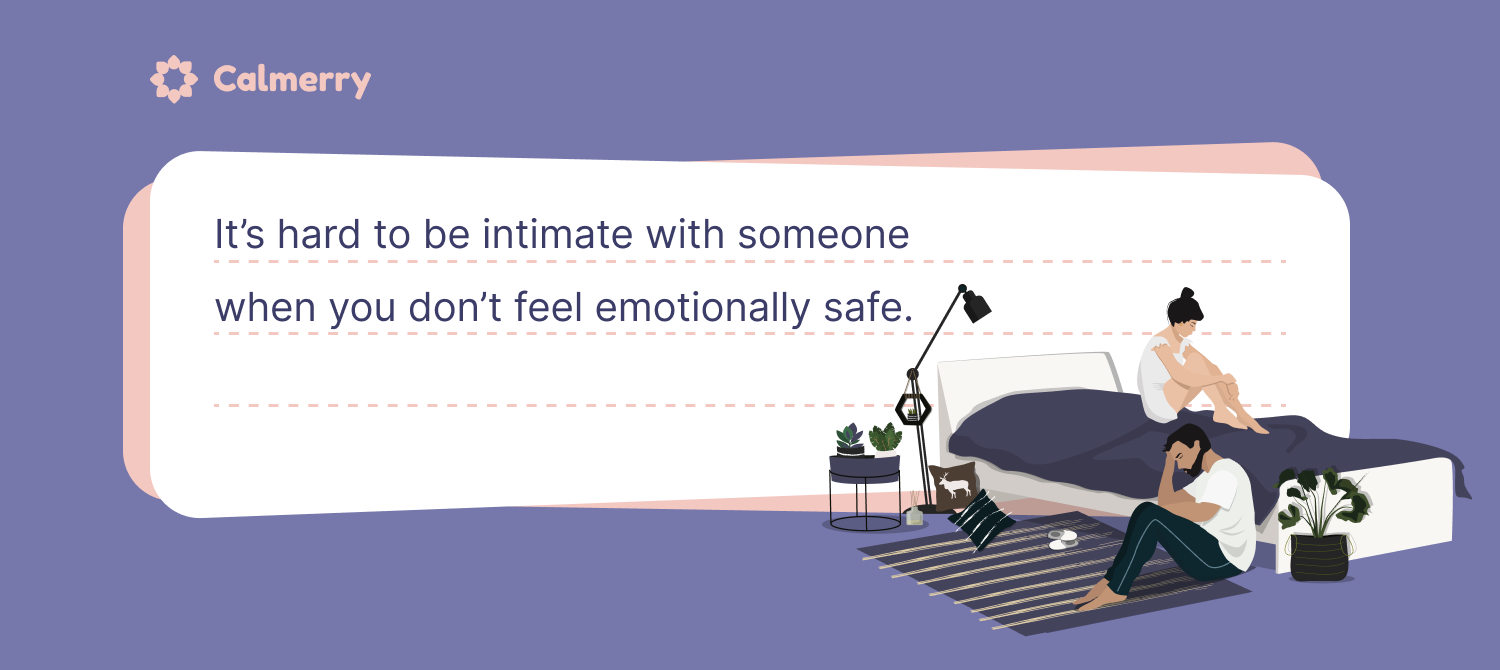Love and Sex: How and Why the Fit Matters

In this article
When you think of sex, do you also think of love?
How about when you think of love? Do you also think of sex?
What if you do?
What if you don’t?
No matter your answer, you’re not alone, and you’re not wrong. Love and sex are two of the most complicated and intertwined aspects of human interaction. They are two distinctly different things, yet they are often viewed as being virtually interchangeable.
If you have one, you must surely have the other, right? The opposing view is that they are not related at all, and you can one-hundred percent have one without the other.
The fact is love and sex are two very important aspects of the human experience and a healthy intimate relationship. They both play a role in our individual experiences as well as in our relationships with others. If challenges arise in understanding or balancing these two elements in your relationship, online relationship counseling can offer guidance and insights tailored to your unique situation.
How they fit together is not the same for everyone. But when it comes to love and sex and our relationships, the fit matters.
What is love?
Ask a hundred people what love is, and you’ll probably get a hundred different answers. Love is that emotion, that feeling, that “certain something” that binds two people together.
Trying to define something so personal and so intimate is hard. To make matters more complicated, there are many different kinds of love.
There are also differences between liking, loving, and being “in love” with someone:
- Liking someone involves feelings like a sense of closeness, admiration, and respect.
- Loving someone involves feelings of attachment, caring, and intimacy.
- Being “in love” brings all these feelings and emotions together, along with sexual attraction.
When it comes to intimate relationships, most often, we’re talking about romantic love. Romantic love is a type of love where intimacy and passion are prominent features.
Sexual attraction is particularly important and plays a key part in the intimate bond that develops between partners.
What is sex?
OK, that might seem like a silly question. We know what sex is, right? Well, sure, in its most basic, biological sense. But that’s not very romantic now, is it? We, humans, are a bit more complicated than that.
For humans, sex is more than just “the act”. We have sex for lots of reasons: it’s fun, it feels good, it’s a physical release, we want to feel close to our partner…pick your reason. And we have sex in lots of ways.
Sometimes, people have sex just because they want to have sex. (To clarify, we’re talking about adult consensual sex.)
But sex is more than just a physical act. Sex actually starts way north of where you’re thinking. Sexual desire and attraction actually start in your brain.

Sexual arousal starts in the brain as the result of a complex combination of physiological, cognitive, and neurobiological factors that drives the need to connect.
Love, or even like, may or may not be in the mix. But interestingly, and this is where people get confused sometimes, having sex can feel like love.
Why? When you have sex, your brain releases a neurochemical called oxytocin, also known as the “love hormone”. Oxytocin plays an important role in emotional attachment and bonding, and it has been found to encourage relaxation, trust, and psychological stability.
Other hormones like dopamine and serotonin stimulate attraction.
When two become one
Even though the basic neurobiological process is the same, just how someone becomes attracted to their partner in the first place actually isn’t the same for everyone.
Some people find that physical attraction is what builds emotional attraction for them. It’s kind of like when you meet someone, and you’re just drawn to each other. It’s that sexual tension and chemistry that just ignites – what most people might call lust.
For them, sexual intimacy comes before emotional intimacy. Despite what you might think, that physical connection can grow into a deep and lasting emotional connection too.
Others find that they need that emotional attraction before they even think about sex.
That connection comes about from getting to know each other, finding things in common, or just something about them that just lights you up.

This type of connection is based on emotions and building an intimate emotional attachment before proceeding to sexual intimacy.
One way of building attraction isn’t better or worse than the other. It’s more about how attraction happens for you.
So, just how important is sex in a relationship? According to most research on love and sex, very important.
Love, sex, and relationships
There’s no shortage of theories about love and sex. What we do know is that love and sex have an interconnectedness that seems to have an impact on the quality of a relationship as well as individual benefits for each partner.
Health
It might surprise you, but sex can improve your health. It has been shown to:
- Strengthen your immune system
- Aid in sleep
- Lower blood pressure and improve heart health
- Reduce stress
- Reduce pain
Sex can even boost your libido. Having sex can increase your desire for more sex.
Sex has been shown to improve self-esteem too. It tends to make us feel sexy and desired and attractive. Sex can boost your self-confidence and foster a positive self-image.
Beyond the physical and health benefits, sex can help strengthen and sustain the bond that you have with your partner and enhance the level of intimacy that you share. These factors can help to sustain the relationship even when sex frequency waxes and wanes.
Satisfaction

Couples with higher sexual frequency tend to report higher levels of overall satisfaction with the relationship and more affection. And married couples are less likely to divorce.
A safe, satisfying sex life also increases feelings of happiness and well-being. Both the physical act and the affection and connection it brings contribute to those feelings.
Speaking of sexual frequency, is there such a thing as too much sex? It depends.
Couples who have sex once or twice a week tend to report more satisfaction than those who have sex once a month. But while having sex regularly seems to be beneficial, research suggests that more doesn’t necessarily mean better. The quality of the encounter matters too.
The good news is, there is no right or wrong answer. How much is right for you is up to you and what feels right for you.
Intimacy
Love may bring you together, but it takes more than just love to stay connected. Intimacy is more than just being physically close.
Intimacy is also about the emotional connection that two people share. And sex and love are both essential components of emotional intimacy.
Sex can enhance the closeness and connection that couples feel, but it’s less about the physical act than it is the meaning it holds. Feelings of closeness and sexual satisfaction, commonly referred to as “afterglow,” can leave partners with positive feelings about each other for weeks after.
And let’s not forget the “love hormone.” The release of oxytocin and other hormones also helps to enhance the emotional bonding between partners.
Trust
Sex builds trust between you and your partner. When you are physically and emotionally intimate, you are vulnerable to your partner.

That level of intimacy requires a tremendous amount of trust to know that you are physically and emotionally safe with your partner.
When trust is lacking or even broken, the emotional bond breaks down, and intimacy issues emerge. It’s hard to be intimate with someone when you don’t feel emotionally safe.
Can you enhance the love and sex connection?
The good news is, yes, there are things you can do to strengthen that physical and emotional connection with your partner.
Couples who work on their relationship with intention are often able to enhance those feelings of love and of passion, both of which are important to sustaining a long-lasting relationship.
Here are some tips to make the connection:
- Use your words – Couples who engage in intimate, sensual communication tend to be better able to share emotions and talk about intimate issues, including their wants, needs and desires.
- Touch – Make it a point to be physically close. Touch each other. Hold hands. Hug each other or sit next to each other.
- Make time for sexual intimacy – Yes, that might mean scheduling time for sex or for just spending time together as a couple.
- Intentionally share with your partner – Make time to mindfully share and listen to each other about things beyond what’s for dinner. Let your emotions be!
- Kiss, and kiss often – Kiss like you mean it. There are quick kisses, and then there are those meaningful kisses. Couples need both. Kissing with intention builds a ritual of connection and builds fondness and appreciation between you.
- Do the little things – You’ve probably heard the old saying, “little things mean a lot.” When it comes to sustaining an intimate relationship, they mean everything. Grand gestures are all fine and good, but it’s those little kind gestures you do every day that say “I love you” like nothing else.
With some attention and nurturing, couples can reconnect and grow.
The takeaway
So, can you have love without sex? Sure.
Can you have sex without love? Absolutely.
But when we’re talking about romantic relationships, there’s a connection between love and sex and the attachment you form that means you need both.
To what degree and what that actually looks like for you depends on your relationship and your needs. What fits you might not fit for someone else, and that’s OK.
When your relationship feels out of balance, figuring it all out on your own can be overwhelming, especially when emotions are running high.

A relationship or a couples therapist can help you sort it out, find the disconnect and help you find the right solution for you.
Online therapy makes finding a therapist easier than ever, and you can see someone when and how it feels most comfortable for you. And online therapy has been shown to be as effective as traditional in-person counseling, even for couples if your partner chooses to join you!
When you’re ready to take that important step in your healing journey, there is a therapist ready to help and work with you individually, providing the support and guidance you need. Consider exploring Calmerry, where you can connect with caring professionals who are dedicated to assisting you on your path to wellness.
online therapy
live video session



